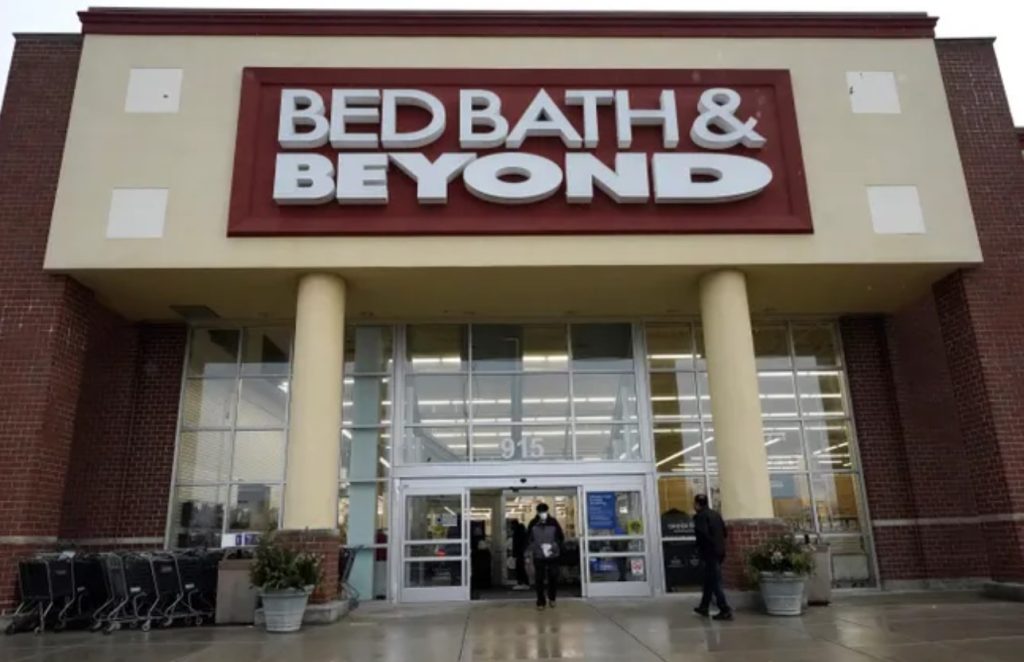
NEW YORK — Bed Bath & Beyond said Wednesday that it will shutter stores and lay off workers in a bid to turn around its beleaguered business.
The home goods retailer based in Union, New Jersey, said it will close about 150 of its namesakes stores and slash its workforce by 20%. It estimated those cuts would save $250 million in the company’s current fiscal year. It also said it is considering selling more of its stock to shore up its finances and had lined up more than $500 million of new financing.
But it will keep its buybuy Baby chain, which earlier this year it considered selling.
Bed Bath & Beyond’s stock fell more than 21% Wednesday and is down 65% in the last 12 months.
Mired in a prolonged sales slump, the company also announced it will revert to its original strategy of focusing on national brands, instead of pushing its own store labels. That reverses a strategy embraced by its former CEO Mark Tritton, who was ousted in June after less than three years at the helm. It said it would get rid of one-third of its store brands, which had started to be rolled out in the last year or so.
“There’s still an incredible degree of love for Bed Bath & Beyond,” Mara Sirhal, the newly named brand president of Bed Bath & Beyond, told industry analysts Wednesday. “We must get back to our rightful place as the home-category destination, and our goal is to achieve this by leading with the products and brands our customers want.”
As of May, the retailer operated a total of 955 stores, including 769 Bed Bath & Beyond stores, 135 buybuy Baby stores and 51 stores under the names Harmon, Harmon Face Values or Face Values. As of February, it had roughly 32,000 employees.
Time is of the essence for the company heading into the critical holiday shopping season. It said it expects a 26% decline in comparable sales for its fiscal second quarter, which ended Saturday. It burned through $325 million of cash in the quarter.
Sirhal said the retailer wants to get back to being a place where shoppers find innovative items. For example, Bed Bath & Beyond was the first to bring items like the air fryer and the single-serve coffee maker to its customers, she said.





























